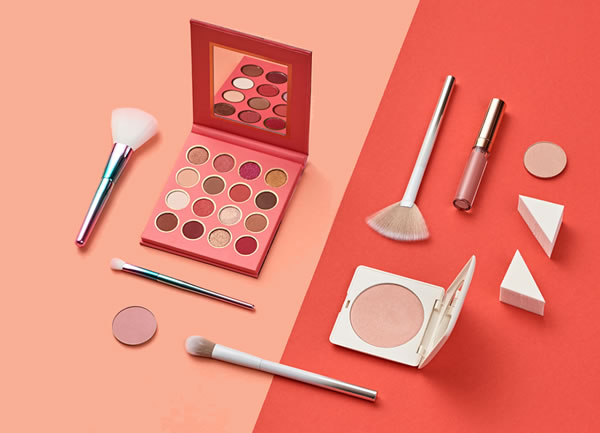You may have read articles in the news reporting on a campaign from an organisation in the US, Breast Cancer Action (BCA), suggesting cosmetic products contain chemicals linked to increased cancer risk. The campaign "Poison Isn't Pretty" directs its accusation against the charity Look Good Feel Better (LGFB) in the US. We understand this could cause alarm and worry for the millions of people who use cosmetic and personal care products, and especially for those who are suffering from cancer.
While some of the aims of BCA in raising awareness of breast cancer, the need for ladies to check their breasts regularly and a call for evidence-based support are to be encouraged, CTPA categorically refutes any suggestions made by BCA that cosmetic products or their ingredients can be the cause of breast cancer or hinder its vital treatment.
If an ingredient were found to cause cancer as it is used in a cosmetic product it would, quite simply, be banned from use.
We are disappointed that a campaign calling for fact-based and evidence-based support has fallen short of finding out the actual facts about cosmetic ingredients itself, but rather could cause concern among those who are so unfortunate to be suffering from breast cancer. At such a vulnerable and difficult time it is important that further, and completely unwarranted, worry is not perpetuated by such scare campaigns.
Dr Emma Meredith, a pharmacist and Director of Science at the CTPA says: "Cosmetic products are one of the most studied and safest classes of consumer product on the market today. It is quite wrong for campaigns to question the safety of cosmetic products and so frighten people into thinking they have done something wrong to cause them to have cancer. Everyone can have confidence in the safety of their cosmetic products that are used daily by millions of people worldwide."
The Personal Care Products Council (PCPC) in the US has also issued a statement about the BCA Campaign on its website.
Why we can be confident that our cosmetic products are safe to use
Cosmetic products are covered by strict safety legislation - the EU Cosmetics Regulation, which covers the manufacture and supply (whether sold or not) of cosmetic products to the UK and European markets.
The main aim of the Cosmetics Regulation is consumer safety. In order to ensure this, each cosmetic product must undergo a safety assessment by a duly qualified and experienced safety assessor (whose qualifications are stated in the Cosmetics Regulation) before it is made available for sale. The safety assessment takes account of all the ingredients used in the product, how the product will be used, by whom, how often and where it will be used. The safety assessor takes personal responsibility for the safety of the product and will not sign the assessment unless they are absolutely certain of the product's safety. All of this information about the cosmetic product is available to scrutiny by the competent authorities. In the UK this is Trading Standards.
Also if the safety of an ingredient is called into question it is reviewed by the European Commission's panel of independent experts, the Scientific Committee on Consumer Safety (SCCS).
Look Good Feel Better (LGFB)
Finding out that you have cancer can be daunting and life-changing and the added stress of the appearance-related side-effects of treatment can be demoralising and very hard to cope with. This can have serious consequences on self-esteem and confidence at a time when a positive attitude is very important. Attending a LGFB Workshop or Masterclass can help people regain a sense of control and normality at a time when diagnosis and treatment can make everything feel overwhelming, as well as helping cancer patients deal with some of the side-effects of treatment.
Major research undertaken by LGFB UK in 2012/2013, with 2000 beneficiaries throughout the UK, highlighted that 97% of respondents felt more confident after attending a LGFB Workshop and this remained at 96% three months later. This impressive improvement in a patient's outlook has long-been recognised by the medical profession during the +20 years that the Programme has been running in the UK and worldwide resulting in specialist oncologist units showing full support for the LGFB Programme, the only worldwide cancer support charity to provide such practical support.
Professor Margaret Spittle, OBE, FRCP, FRCR, AKC says: "We do so many terrible things to patients while they're undergoing treatment and there is an increasing feeling that we should be doing more for their overall well-being. Look Good Feel Better addresses that and should part of the normal approach to cancer management. The visible side-effects of cancer treatment is something that really worries patients - aspects that they sometimes don't feel able to talk to their oncologist about. After an LGFB workshop, I've witnessed patients become less depressed, more confident and more able to get on with a 'normal' life. Anything that improves confidence during a very difficult time is marvellous."
What do other cancer and scientific experts say?
Cancer Research UK which highlights a number of myths and 'cancer controversies'surrounding the safety of cosmetic products and explains why there is no good scientific evidence to believe that any of these products could cause cancer.
Breast Cancer Now website
NHS Choices 'Behind the Headlines' regularly puts into context scary media reporting of new research and campaigns on the NHS Choices website. In particular, in December last year, Dr Alicia White placed an article on how to read articles about health, which applies equally to campaigns by pressure groups with their own agenda, where she highlighted the need to check for the scientific evidence.
Sense About Science urges people to 'Ask for the Evidence' before believing claims and scare-tactics designed to create a media storm.

